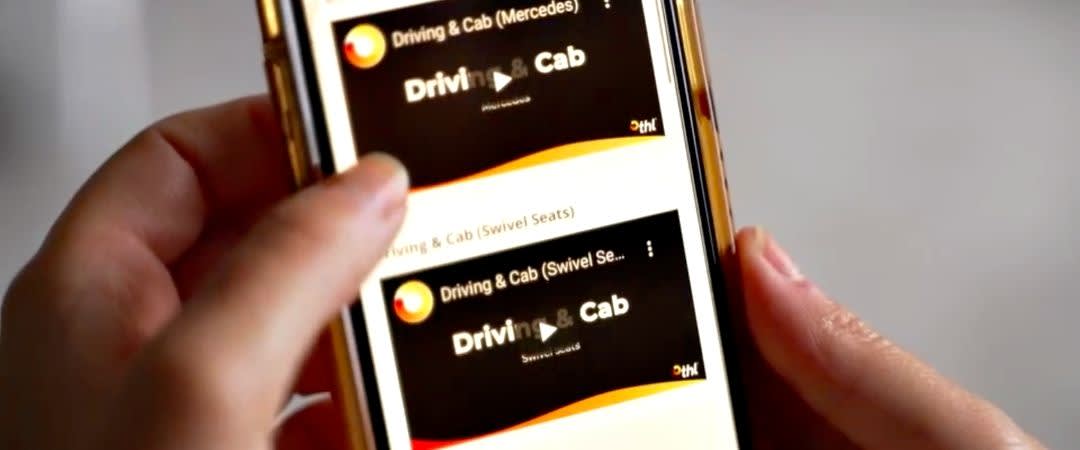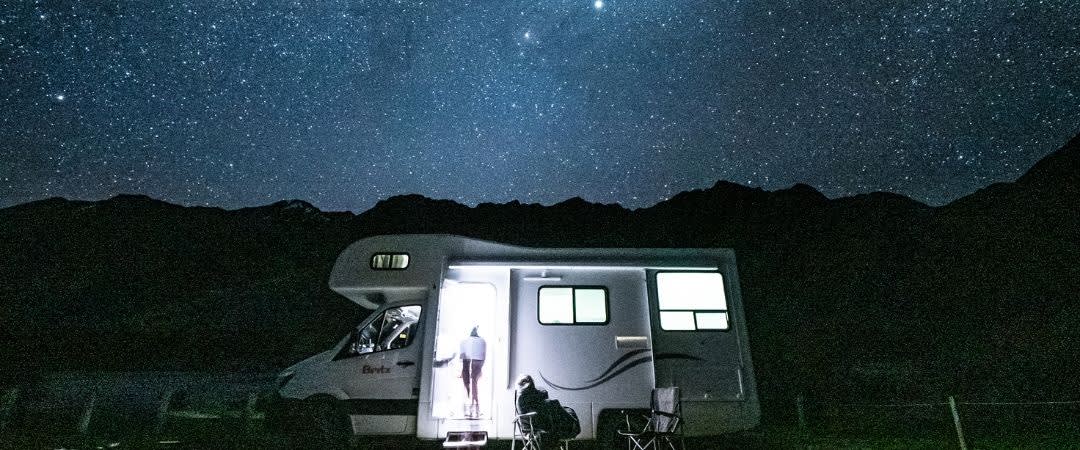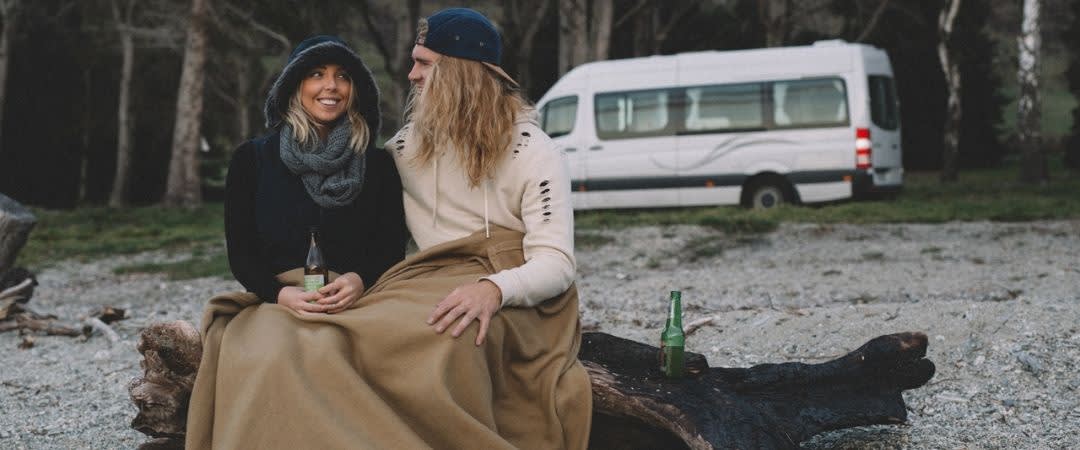


Join thousands of fellow campervan travellers
Sign up for our Britz newsletter to receive inspirational travel content and awesome deals, and we'll send you a copy of our Ultimate RV guide!
Thanks
Please confirm subscription in your email.
What to expect of freedom camping grounds in New Zealand
Rules of freedom camping in New Zealand
Where can you legally freedom camp in New Zealand
Respecting Maori culture when freedom camping
What does it cost to freedom camp in New Zealand?
What is a self-contained vehicle?
How long can you freedom camp for?
What works if my campervan isn't plugged into power?
How to find your way around New Zealand
Other things to consider when freedom camping in New Zealand
What to expect of freedom camping grounds in New Zealand
Freedom camping grounds in New Zealand range from council-owned parking areas to Department of Conservation land.
As freedom camping zones are not recognised camping areas, they are usually quite basic and only some will have facilities like toilets, water and rubbish bins. Of course, that is not a problem when you are in a self-contained campervan!
They are also great for travellers who are seeing where the road takes them, as you don't need to book in advance like traditional campervan campgrounds.

What are the rules of freedom camping in New Zealand?
First of all, it’s important to note that whenever you camp, you should never leave anything behind. Freedom camping grounds are shared spaces that are often unattended, so it takes effort from all visitors to help keep them in good shape.
Disposing of rubbish
Imagine turning up to a freedom camping spot and seeing rubbish littered through streams and bush walks. New Zealand is known for being 'clean and green' but for us to keep that label it's important to always take your waste with you to dispose of responsibly if there are no rubbish bins available.
The easiest way to keep us green is to carry something to keep your rubbish in like bags or containers, then dispose of it properly when you can.
Disposing of motorhome waste
Around every two to three days you will need to get rid of your motorhome waste. This is something you should plan for when freedom camping as there may not be a disposal site at your chosen camping spot.
It’s important that you only use designated waste disposal stations in order to stop diseases like giardia from spreading. Some Department of Conservation areas use streams to gather their water supply, so getting rid of waste in an area that’s not designated is a big no-no. You can find these easily when on the road using our thl Roadtrip App.

Make sustainable choices
Though a freedom camping site may have certain facilities available, it's still important to make sustainable choices, both for the environment and for the good of other campers.
- Switch off motorhome electrical equipment when not in use
- Use water sparingly
- Carry reusable water bottles and reusable containers with you to reduce waste
New Zealand is also on a mission to massively reduce our use of single-use plastic bags as these are a hazard to the environment. Where possible, try to avoid using these by opting for paper bags or bringing your own reusable bags when you’re heading out to pick up supplies.
Never take anything
As travellers, we love the saying ‘take only pictures, leave only footprints.’ Though it can be tempting to take a piece of New Zealand with you such as clippings from trees or interesting shells from the beach, it's advisable to avoid this. The Department of Conservation, along with many other organisations work hard to restore our lands and protect our wildlife- and taking even something small can jeopardize those efforts.
Leaving New Zealand destinations as you found them will help keep Aotearoa beautiful for future generations of travellers.
Visit New Zealand’s Camping Our Way website to learn more about ethical camping practices.

Where can you legally freedom camp in New Zealand
It's a good idea to get acquainted with where you can legally camp on the road. Rules for freedom camping in NZ vary by region. Local councils and DOC set their laws and guidelines on where you can stay and for how long and regularly patrol areas prone to illegal freedom camping. If found freedom camping in the wrong place, in an unsuitable vehicle or for too long, you may be issued an instant NZ$200 fine.
An unexpected expense like that could put a dampener on your trip so it's always best to err on the side of caution, make sure you read signage, research the site, or ask the question.
Camping grounds, like the Department of Conservation Sites and National Park camps, are almost always immersive and beautiful so look up nearby National Parks on the road first - that’s where we always start looking!
Freedom camping is permitted on public conservation land, except in areas where it is expressly prohibited or restricted to self-contained vehicles.
We’ve made it super easy for you to find the best legal spot to park up, just download our thl Roadtrip app and we’ll give you more information on free and authorised camping grounds.
Respecting Maori culture when freedom camping
Another important thing to keep in mind when travelling in New Zealand is respecting the indigenous Maori culture.
Protecting the natural environment is one of the key customs in Maori culture. There are some actions related to the national environment that are deemed as being disrespectful - such as bathing in certain streams or occupying certain areas of land deemed sacred.
Learning a little bit about Maori culture and beliefs can help you to understand why these things are important to respect and help you avoid any faux pas when on the road.
Learning about the Tiaki Promise, an initiative to help all travellers to New Zealand care for people, place and culture, for now and for future generations is a great place to start.

What does it cost to freedom camp in New Zealand?
A lot of the freedom camping grounds in New Zealand are free to use! Using free camping grounds will help you to save those precious holiday funds towards adventuring, and because New Zealand is so beautiful, you can still find plenty of stunning free camping locations.
Some freedom camping sites do charge a small fee for maintenance and others have donation boxes. Just keep an eye out for signage, or look up the camping spot in advance if you aren’t sure of the rules.
What is a self-contained vehicle?
This is a vehicle certification used to identify campervans that can contain water waste for up to 3 days (in the form of water supply, greywater and septic waste). Luckily all Britz campers are certified self-contained, so if you’re travelling with us then you’re set to stay in designated areas for self contained vehicles.
How long can you freedom camp for?
We recommend plugging in and powering up your camper every second night. The more equipment you have, the quicker your batteries drain.
A good tip is to keep the fridge filled, even by using recycled bottles filled with water, and turning the fridge to a lower setting.
Parking the vehicle in the shade can also reduce power consumption.
Alternating your freedom camping spots with Holiday Park camping spots is the most effective way to camp in a Britz camper, as it allows you to save a bit of money and stay in more remote destinations, while avoiding fines for overstaying or running out of power in your vehicle.
What works if my campervan isn't plugged into power?
When the domestic or living area battery (separate to your vehicle battery) has a healthy charge you can run the fridge, house lights and some entertainment, along with the ignition for the water heater, and the diesel heater would also work.
The microwave, DVD player & screen (if available with your vehicle type) and the sockets for electrical equipment need 240V connectivity to operate.

How to find your way around New Zealand
Although we are a small country, that doesn’t mean it’s impossible to get lost, or find yourself on the wrong track.
Some roads in New Zealand can be narrow and windy, and require you to take extra care when driving, so it’s a good idea to consider an itinerary to ensure you are travelling on the best route.
Another important part of driving on New Zealand roads is to make sure you understand the road rules and signage before you take off.
What are some other things to consider when freedom camping in New Zealand?
Now that we have gone over how freedom camping in New Zealand works, here are some final tips that will help to make your freedom camping trip easier.
Supplies to bring
- Rubbish bags or containers for waste
- Maps (or downloaded online maps - also found on our thl Roadtrip app)
- Supply of water
Though New Zealand is a stunning place to be year-round, try to remember our weather can change suddenly so you should bring a rain jacket and sun protection no matter what time of year you travel.
Respecting other campers and locals
Because New Zealand is fairly small there is a good chance you will be sharing freedom camping spots with another freedom camper, so it’s important to respect the spot you park at.
You may also be parked near residential areas such as parking lots, so try to be mindful there may be houses nearby.
- Park your motorhome so you aren’t blocking anyone else’s access
- Keep noise to a minimum
- Take your rubbish with you if there is no space in provided bins
- Be fair when using shared resources like water
- Respect the facilities by tidying up after yourself when using things like showers or toilets

Wherever you travel, we guarantee there’ll be a freedom camping ground for you to soak in nature and wildlife. Have a beautiful time out there, and don’t forget to post some pictures for us – just tag #britzcampervans!
